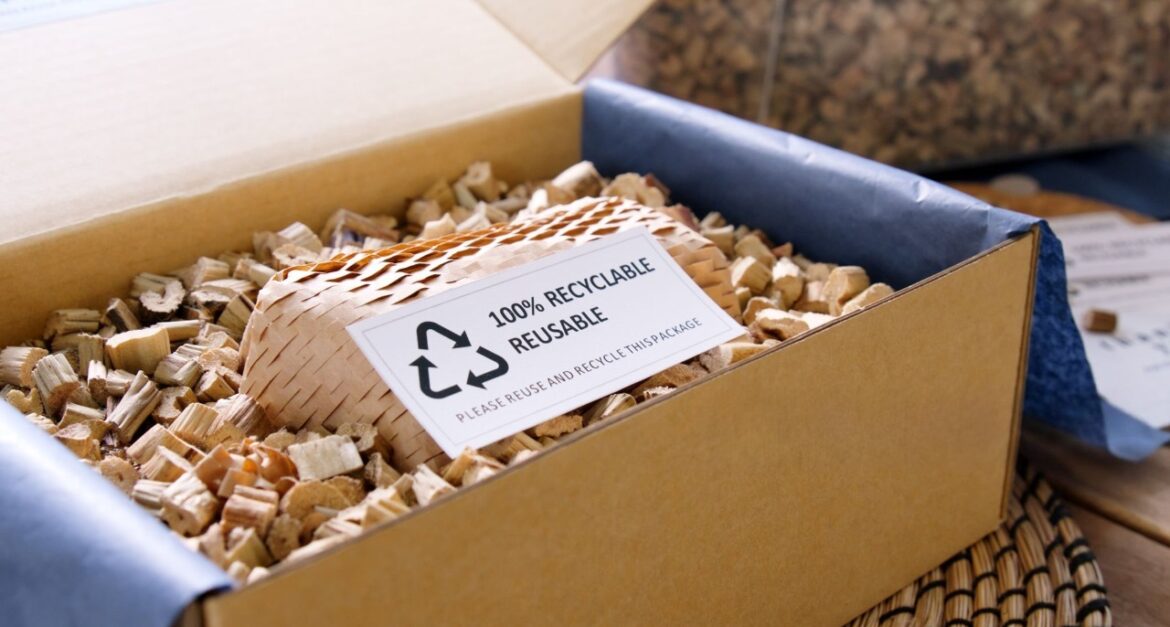
Introduction: The Silent Complexity of Packaging Imports
The changing trade environment in Saudi Arabia has placed packaging material beyond the protection shells, it is a crucial element in the business, retail and export efficiency. However, importers usually do not realize how complicated the transportation of packaging products is.
All plastic bottles, aluminum cans, wooden crates, or corrugated cartons are to be in accordance with certain Hs codes and Saudi regulations of the environment. One mistake in categorization or labeling may cause postponements in shipments and introduce major expenses.
This guide will examine all this about packaging HS codes in KSA, package classification, compliance, and ISPM-15 requirements of wooden packaging to help importers simplify the process of custom clearance with the knowledge of palm horizon KSA, which is among the best logistics firms in Saudi Arabia.
Understanding HS Codes for Packaging Materials
The World Customs Organization has created the Harmonized System (HS), a universal nomenclature. The Zakat, Tax and Customs Authority (ZATCA) in Saudi Arabia applies HS codes to control imports, calculate duties and to ensure that the imports are in line with SASO and environmental standards.
For packaging materials, these codes determine product classification based on material type, use, and structure. Proper HS coding is critical to prevent reclassification fines, port delays, or compliance rejections. Palm Horizon KSA assists importers in identifying precise HS codes through verified product audits and pre-clearance reviews, ensuring every shipment aligns with KSA customs expectations.
Plastic Packaging Materials
Plastic remains the most versatile packaging medium in Saudi Arabia’s consumer and industrial sectors. From bottled water and food containers to heavy-duty drums and pallet wraps, plastics play a vital role in logistics efficiency.
| Type | Description | Common HS Codes (KSA) |
| PET bottles | Transparent bottles for beverages and water | 3923.30.10 |
| HDPE containers | Chemical-resistant containers and jerrycans | 3923.30.90 |
| Plastic caps and closures | Bottle caps, jar lids, seals | 3923.50.00 |
| Stretch film and wrapping sheets | Used for pallet covering and packaging | 3920.10.00 – 3920.49.00 |
| Plastic boxes and crates | Reusable plastic packaging | 3923.10.00 |
Regulatory Requirement: All plastic packaging imported into Saudi Arabia must comply with SASO 2879, covering oxo-biodegradable material standards. Palm Horizon ensures suppliers provide the necessary biodegradability certifications and labeling before customs submission.
Paper and Carton Packaging
Carton-based packaging materials dominate e-commerce, FMCG, and retail logistics. These materials offer cost-effective, recyclable, and lightweight solutions suitable for nearly every industry.
| Type | Description | Common HS Codes |
| Corrugated cartons | Standard shipping boxes | 4819.10.00 |
| Folding cartons | Packaging for cosmetics, food, and pharma | 4819.20.00 |
| Paper sacks and bags | Used for cement, flour, and grains | 4819.30.00 |
| Boxboard and laminated paperboard | Premium packaging applications | 4819.50.00 |
| Recycled paper packaging | Eco-friendly packaging | 4804.11.00 – 4804.19.00 |
Compliance Tip: SASO 2601 requires paper packaging to include recyclability data and material composition details. Palm Horizon supports importers in preparing and uploading environmental conformity documents on the SABER platform.
Aluminum and Metal Packaging
Metal packaging provides durability, food safety, and extended shelf life. In Saudi Arabia, aluminum and steel containers are vital to the beverage, paint, and chemical industries.
| Type | Description | Common HS Codes |
| Aluminum beverage cans | Soft drinks, juices, and energy drinks | 7612.90.10 |
| Aluminum drums and barrels | Bulk liquid transport containers | 7612.10.00 |
| Tinplate food containers | Used for canned foods | 8007.00.10 |
| Steel drums | For oil, lubricants, and chemicals | 7310.10.00 |
| Metal closures and lids | Caps and sealing accessories | 8309.90.00 |
Compliance Note: SASO 2656 outlines food safety standards for metal packaging, ensuring the absence of chemical leaching. Palm Horizon pre-verifies conformity documents and packaging safety reports to prevent inspection delays at ports.
Wooden Packaging and ISPM-15 Requirements
Wooden packaging materials — such as crates, boxes, and pallets — are critical for export logistics, particularly in construction, oil, and machinery sectors. However, they also pose phytosanitary risks, leading to strict international regulations.
| Type | Description | Common HS Codes |
| Wooden pallets | Standardized export pallets | 4415.20.00 |
| Wooden crates and boxes | Machinery and heavy equipment packaging | 4415.10.00 |
| Wooden reels and drums | Cable and wire transport | 4415.90.00 |
| Particle board packaging | Lightweight wood composite crates | 4410.11.00 |
| Plywood or veneer panels | Structural wood packaging | 4412.99.00 |
ISPM-15 Standard:
In Saudi Arabia, the International Phytosanitary Measures No. 15 that stipulates the requirement of all wooden packaging is in place and states that it must be:
- Heat-treated at 56°C for 30 minutes
- Labelled with the IPPC stamp, country code and treatment identifier (HT).
- Barkless, pestless and unsplished restorations.
Causative mutation: Inappropriate ISPM-15 marks may be labeled or omitted and the port may be detained or re-export orders are to be issued by the ministry of environment, water and agriculture (MEWA).
Palm Horizon KSA confirms the suppliers or certifies ISPM-15 documentation to ensure that all the shipments are fully compliant.
Glass Containers and Packaging
Glass packaging is primarily used in the food, beverage, and pharmaceutical industries due to its inert nature and reusability.
| Type | Description | Common HS Codes |
| Glass bottles | Water, oil, and beverage packaging | 7010.90.10 |
| Glass jars | Used in cosmetics and healthcare | 7010.90.20 |
| Pharmaceutical vials and ampoules | For injectables and medicines | 7010.10.00 |
| Recycled glass containers | Environmentally sustainable packaging | 7001.00.10 |
Compliance Note: SASO GSO 1863 mandates that all glass packaging materials must be lead-free, recyclable, and safe for food contact. Palm Horizon’s logistics specialists handle documentation in advance to align imports with these standards.
SASO and Environmental Compliance
Saudi Arabia is determined to adopt Vision 2030, which will involve paying great attention to sustainable trade and environmentally friendly packaging materials. SASO (Saudi Standards, Metrology, Quality Organization) keeps track of all the imported packaging within the environment and recycle ability frameworks.
Significant SASO Regulations that apply to Packaging:
- SASO 2879: Biodegradable plastics.
- SASO 2601: Paper recyclable packaging.
- SASO 2656: metal containers of food grade.
- SASO 1863: Glass containers safety.
To comply, importers must:
Register packaging products on SABER.
- Provide conformity certificates (CoC)
- Make sure labeling (Arabic and English).
Palm Horizon KSA eases the overall documentation and CoC activities so that the environmental and product certification can be provided in accordance with the SASO expectations prior to importation.
Industries That Depend on Packaging Imports
The Saudi Arabian packaging materials are the basis of various industries:
- Food & Beverage: Use PET bottles, aluminum cans and cartons as shelf ready packaging.
- Pharmaceuticals: rely on sterile glass bottles and vials.
- Oil & Gas: Use strong wooden boxes and metal barrels.
- Construction: Use paper sacks, HDPE bags and wooden pallets.
- E-commerce: Corrugated cartons and bubble wraps will be used to deliver products efficiently.
Through these various import needs, Palm Horizon KSA is able to make sure that each industry gets ready to use packaging materials that are compliant and have zero customs delays.
Avoiding Common HS Code Errors
Misclassification of packaging materials remains one of the top causes of port delays and customs fines.
| Incorrect HS Code | Correct HS Code | Description |
| 3926.90.00 | 3923.30.10 | PET bottles incorrectly listed as “other plastics” |
| 4415.90.00 | 4415.20.00 | Wooden pallets wrongly declared under general wood items |
| 4819.10.00 | 4819.50.00 | Folding cartons misclassified by type |
| 7612.10.00 | 7612.90.10 | Aerosol cans entered under general containers |
Palm Horizon conducts pre-import audits to confirm accurate HS codes, avoiding reclassification and ensuring compliance with Saudi customs.
Frequently Asked Questions
What is the Hs code of plastic water bottles in Saudi Arabia?
The HS code to be used is 3923.30.10, which includes PET bottles that are used as beverages and mineral water. Prior to clearance the importers will be required to present SASO-compliant documentation.
Are all wooden pallets entering KSA in need of compliance with ISPM-15?
Yes. All the wooden pallets should be heat-treated and stamped under ISPM-15 in order to avoid the contamination of pests at the ports of Saudi.
What will occur in case my shipment is not labeled with the ISPM-15?
The Saudi customs are allowed to request fumigation, quarantine, or re-export at the expense of the importer, and this will keep your cargo held up.
Does SASO have to be certified on plastic packaging imports?
Yes. All plastic packaging should comply with SASO 2879 and include a Certificate of Conformity of either biodegradable requirements or a recyclable requirement.
Is Palm Horizon able to handle the imports of multi-material packaging?
Absolutely. The Palm Horizon KSA is the company regarding the integrated logistics of plastic, paper, wood, aluminum, and glass packaging imports.
What is the Hs code of corrugated cardboard boxes?
The corrugated carton is defined according to HS code 4819.10.00 used in e-commerce and industrial shipping containers.
Do beverage cans of aluminum receive food-grade treatment?
Yes. Aluminum cans (HS code 7612.90.10) should be safe to use as food and beverage containers as stipulated by SASO 2656.
Are there varying HS codes to recycled packaging materials?
Yes. Separate sub-codes (e.g., 4804.11.00) are used when recycled paper and plastics are used, and it has to mention, in import documentation, that it is recycled.
Conclusion: Streamlining Compliance Through Expert Logistics
The correct HS code classification of packaging is not just an administrative measure, but it is the entry point to successful supply chain performance in Saudi Arabia.
There are environmental, structural and regulatory standards related to each category of packaging. The maneuver of these requirements requires accuracy, documentation skills and familiarity of the locals.
That is why Palm Horizon KSA is a good choice – it provides complete logistics services that include the HS code verification, SASO compliance processing, and the passing of customs clearance.
Palm Horizon provides plastic bottles, cartons, aluminum cans, and wooden crates to make importers remain compliant, efficient, and competitive in the logistics environment in 2025.





